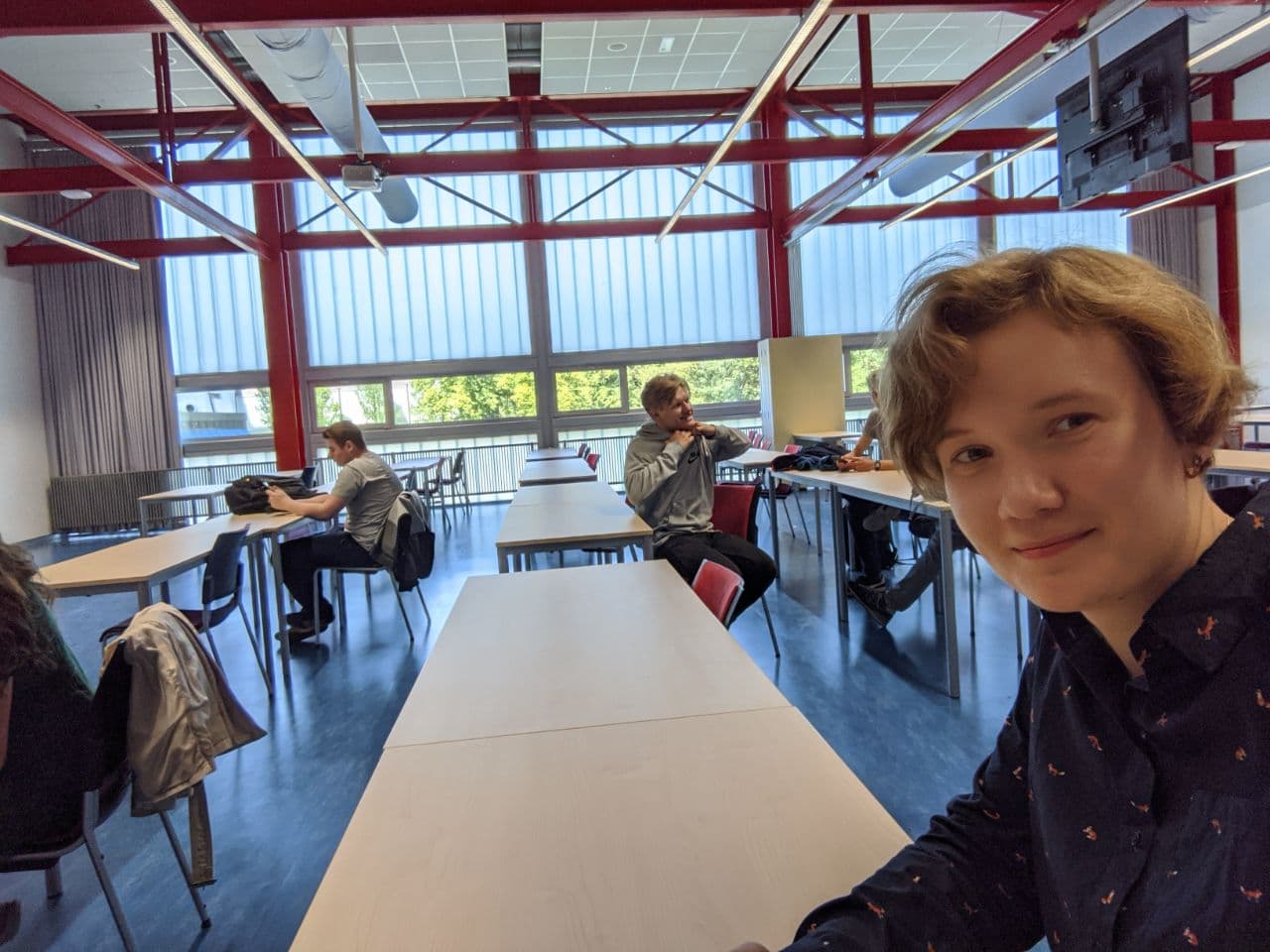Faculty of Computer Science’s Student Talks about Academic Mobility during Pandemic
.jpg)
Anastasia Sakunova, second-year student of System and Software Engineering master’s programme studies at the University of Twente, Netherlands this autumn. We asked her about the differences between studying there and in Russia, her advice to future academic mobility participants, and the influence of the pandemic on her trip.
Academic mobility, Twente, and pandemic travelling
I was thinking about academic mobility from the first year of my master’s studies – I wanted to live in a foreign country, not just visit. I chose Twente because of the list of subjects taught in English; I wanted them to be both interesting to me and meeting HSE University’s credit criteria. I also took into consideration the university’s position in QS rankings.
I got here by Moscow – Amsterdam plane, then by train. I spent the first day in Amsterdam because, due to the pandemic, planes were less frequent than usual, so I arrived in the Netherlands before my rent contract began. I felt a great deal of uncertainty at that time: everything is new and you never can tell what’s next.
I can’t say I was very worried because of the pandemic. I assumed that I won’t be able to come home for New Year or Christmas or return as soon as the semester is over. This did not trouble me, I knew of many of my acquaintances crossing border in summer.
Studies
Educational process is rather unusual here. Every week we read or watch something, then we gather in small groups to discuss and question the material. Then the professor presents the material during a half-hour or forty-minute lecture, and we discuss what we have learned again. I think this makes your immersion into the subject much deeper. Surprisingly, academic load is much bigger here than in HSE University.
The year is divided into four modules, and one subject usually lasts for one module. As in HSE University, every subject has its own evaluation formula. Now I have three subjects, the other three will begin in November. I like Modeling & Analysis of Concurrent System the most – both the subject and the professor. It reminds me of a similar subject at HSE University.
Generally speaking, there is no big difference in educational process between the Netherlands and Russia. They also have student teaching quality assessment here, and they adjust the curriculum following the answers.
However, there is no groups or cohorts; therefore, all courses are elective ones. There is even an opportunity to give up any subject right before the exam if one cannot or doesn't want to study it anymore. Unlike HSE University, Twente does not have annual coursework – just annual exams and the final thesis. I like this approach much more than the usual one because you study something most of the time. On the other hand, it is easier to study in groups as in HSE University – you always know whom to ask questions; it’s also simpler to make friends. Here, it is easy to meet foreigners – the locals enjoy talking to each other in their native language.

Spare time
I was surprised that people begin and end their day much earlier here. I was always told that it is too early to gather and discuss something at 10 AM on the weekend. It is quite ordinary here.
I try to take part in all online and offline events to meet as many people as I can and learn something interesting. I went to the student gymnastics club while it was open. Like many students, I don’t work and study simultaneously, so I have time to read, watch TV series, and write Telegram channel. I can reload myself during the mobility.
Anything wrong?
I think that my difficulties are very ordinary for someone moving to a new country: you don’t know basic day-to-day stuff, how to open a bank account (I advise to take a Maestro card when coming here), where to buy something, or how to use public transport.
I am also upset that all official offline events are cancelled, so I have to miss an important part of social experience. Although, I like the Dutch approach to pandemic restrictions: almost all of them are “recommendations”, not “prohibitions”.
Advice to future participants
Academic mobility is an educational and social experience. Don’t forget to study not just new subjects but also the new culture and new people.
If you can, talk to someone living in the country of your destination or someone who has participated in academic mobility before – even a small piece of advice of daily matters will be helpful. You can also find someone who came here early and is already involved in daily life. Other foreign students are ready to help, remembering about their own recent struggles.
Learn about academic mobility programmes of the Faculty of Computer Science here.
